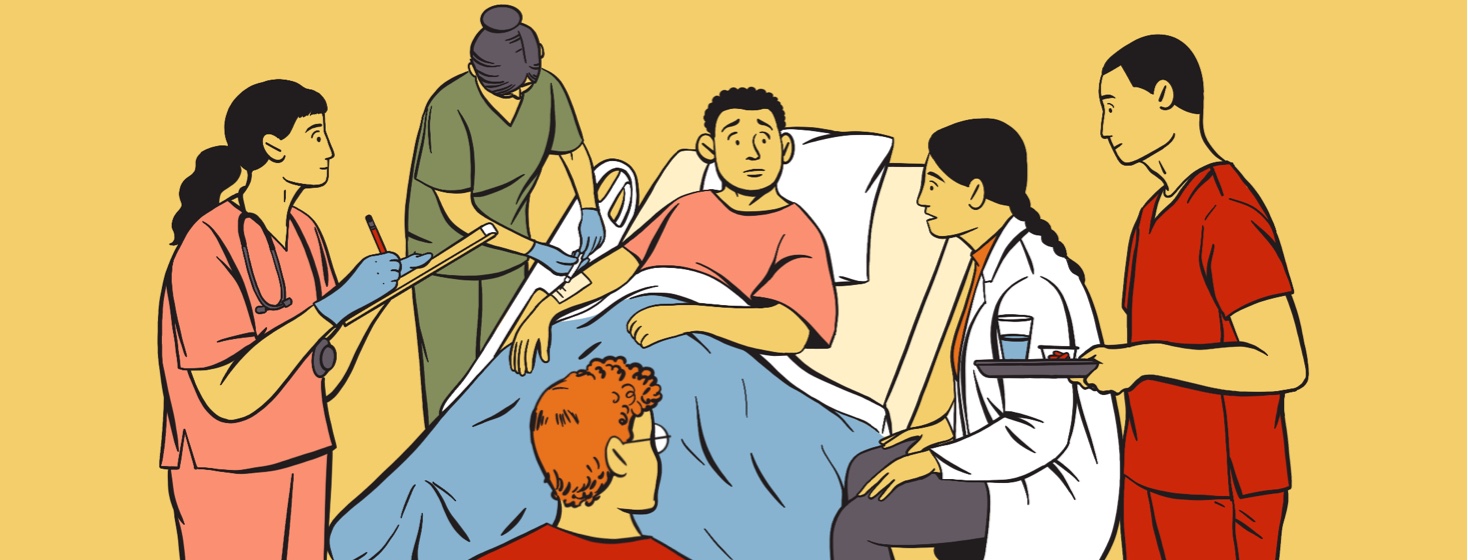Lobectomy: My Story
This article was originally published on July 3, 2017
The first few days after a traditional thoracotomy lung removal can be scary and challenging and affect your mind, body, and spirit. I won't lie to you. For me, it was horrible. I had both left lobes removed surgically shortly after biopsies confirmed I had a tumor in each left lobe. I can tell you what I remember, what I did right, and most importantly, what I did wrong – in hopes you won't make the same mistakes.
Before surgery
I arrived at Pre-Op and was whisked into a room to get me ready. The nurses put in my IV. Numerous people were coming in and out – nurses, anesthesiologists, my surgeon, social workers, and several more that I don't even know who they were. They all start with introductions, and then they all get to the same question, “What procedure are you having today?” By about the 4th or 5th person, my answer was, “Did you read my chart because I've told five people already.” (Yes, rude, but in my defense, I was a nervous wreck.)
Then, the anesthesiologist came in and asked me if I wanted to have an epidural. I panicked. I immediately asked, “Aren't you putting me to sleep?” Of course, the answer was YES. I learned if you are having a thoracotomy it is much easier post-op if they put in an epidural in small doses because it will help with your pain afterward. And boy, does it work.
In the operating room
The time came to wheel me to the operating room. Shortly thereafter, I was in La La Land. The next thing I remember is being moved from a stretcher in the ICU onto a bed. I was screaming out some not so nice words. The nurses were grabbing by left arm to move me, but it was in excruciating pain. I was drugged but I remember it hurting so bad. Turns out, during the nine-hour surgery my left arm had been placed above my head and that is why my shoulder/arm hurt so bad.
Recovery
The next two days I remained in the ICU which was protocol at my facility. Then I was transferred to a private room. I had two chest tubes, a foley catheter, and IVs. I was hooked up everywhere. While I kept the chest tubes and IVs during my entire hospital stay – the foley catheter was removed after about day 5. Now, I could finally get out of bed and go to the bathroom by myself (You never know what a luxury this can be until you can't.)
For me, the most difficult part of the entire 11 days in the hospital was that I had to have the chest tubes for 5 weeks (I went home with them) and the thing that no one wants to talk about – opiate-induced constipation. Lesson learned – ASK FOR MIRALAX from your surgeon BEFORE your surgery so you don't run into the gastrointestinal issues I had (I'm not going to go into detail, but I'm sure you get the idea). You will appreciate this much more around day 4 or 5 when you realize you haven't had a bowel movement in almost a week.
As expected, I moved slowly. My incision really didn't hurt. My chest tubes were a different story – that was what I needed the pain pills for. But, I was up and out of bed walking the halls after about the 5th day. Slow and steady. It took several days for my appetite to come back. I found each time food was placed in front of me, I had no desire to touch it. I suspect this was due to the pain medications as well.
My surgery recommendations
My number one recommendation to anyone having this surgery is - stay ahead of your pain. That being said, be careful with the pain medication. It wreaks havoc on your system, but you will need it. Remember, each person is different, so every surgery is different. My hope is by telling my story of surgery it may help you discuss your procedure with your doctor and have more questions to ask.
Editor’s Note: We are extremely saddened to say that on January 28, 2020, Jennifer Toth passed away. Jennifer was a passionate advocate for the Lung Cancer community. She will be deeply missed.

Join the conversation